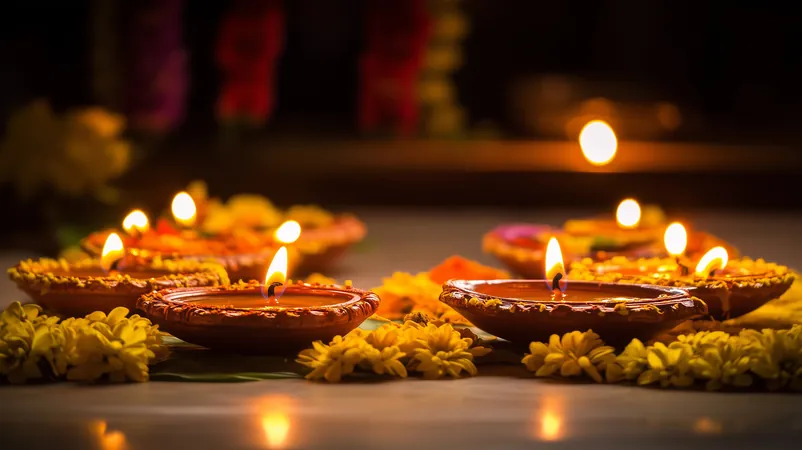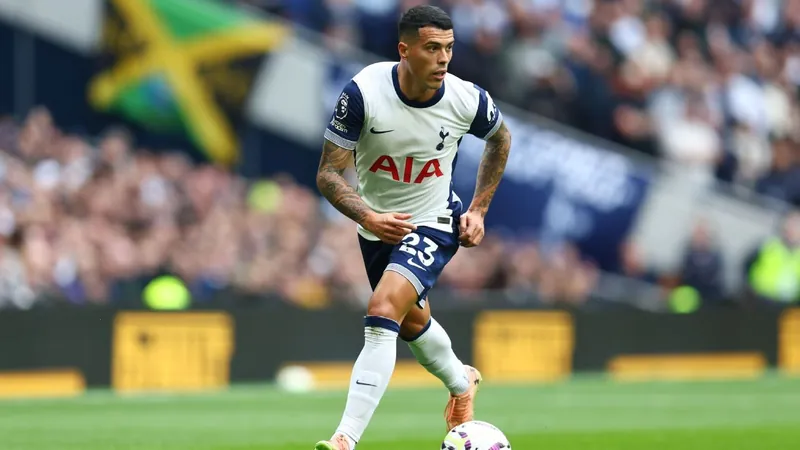
Happy Diwali or Happy Deepavali? Singaporeans Discuss the Evolving Terminology of the Hindu Festival of Lights
2024-10-31
Author: Yu
SINGAPORE: A Local Discussion on Terminology
As the vibrant Hindu Festival of Lights approaches, a local Reddit user sparked discussion by questioning the shift in terminology from "Deepavali" to "Diwali." The user, a Singaporean Indian with roots in South India, noted that during their childhood, the festival was predominantly referred to as "Deepavali" in schools, advertisements, and greetings.
Having observed this change over the years, the user expressed concern about the cultural implications of the shift, writing, "It feels like our culture is slowly being changed. Deepavali is the biggest and most important celebration for us." This sentiment resonated with several commenters who shared similar experiences; however, the consensus leaned toward encouraging respect for varying viewpoints.
Linguistic Roots and Cultural Significance
Language experts highlight that "Deepavali" aligns more closely with the festival's Sanskrit origins. Deepavali translates to "row of lights," where "Deepa" means flame, and "Avali" means row. This meaning reinforces the festival's significance, as it traditionally involves lighting oil lamps to symbolize the victory of light over darkness.
The Shift Towards 'Diwali'
Despite the traditional roots, "Diwali" has gained popularity in recent years, not only in Singapore but across various global diaspora communities. One user shared their adaptive approach: using "Diwali" when greeting friends from North India while reserving "Deepavali" for those from the South. This reflects an acknowledgment of the diverse Indian communities now present in Singapore, particularly as the North Indian population has expanded significantly over the decades.
Cultural Exchange and Inclusivity
There was also a general agreement that the interchangeability of the two terms likely stems from ongoing cultural exchanges and inclusivity efforts. Many participants in the discussion emphasized that regardless of the terminology used, the root values of unity and celebration remain paramount.
Avoiding the 'Language War'
One commenter suggested avoiding the "language war," urging fellow Singaporeans to resist division based on regional, linguistic, or cultural differences. Emphasizing harmony, they noted, "We already face enough segregation within our country. Let's not add to it."
Conclusion: Beyond Terminology
Overall, the conversation around "Deepavali" versus "Diwali" serves not only as a reflection of linguistic preferences but also prompts deeper questions about cultural identity and inclusivity within the Indian community in Singapore. It remains to be seen how this dialogue will shape future celebrations of this cherished festival, but one thing is clear: the spirit of Diwali/Deepavali transcends the words we use to celebrate it.



 Brasil (PT)
Brasil (PT)
 Canada (EN)
Canada (EN)
 Chile (ES)
Chile (ES)
 España (ES)
España (ES)
 France (FR)
France (FR)
 Hong Kong (EN)
Hong Kong (EN)
 Italia (IT)
Italia (IT)
 日本 (JA)
日本 (JA)
 Magyarország (HU)
Magyarország (HU)
 Norge (NO)
Norge (NO)
 Polska (PL)
Polska (PL)
 Schweiz (DE)
Schweiz (DE)
 Singapore (EN)
Singapore (EN)
 Sverige (SV)
Sverige (SV)
 Suomi (FI)
Suomi (FI)
 Türkiye (TR)
Türkiye (TR)